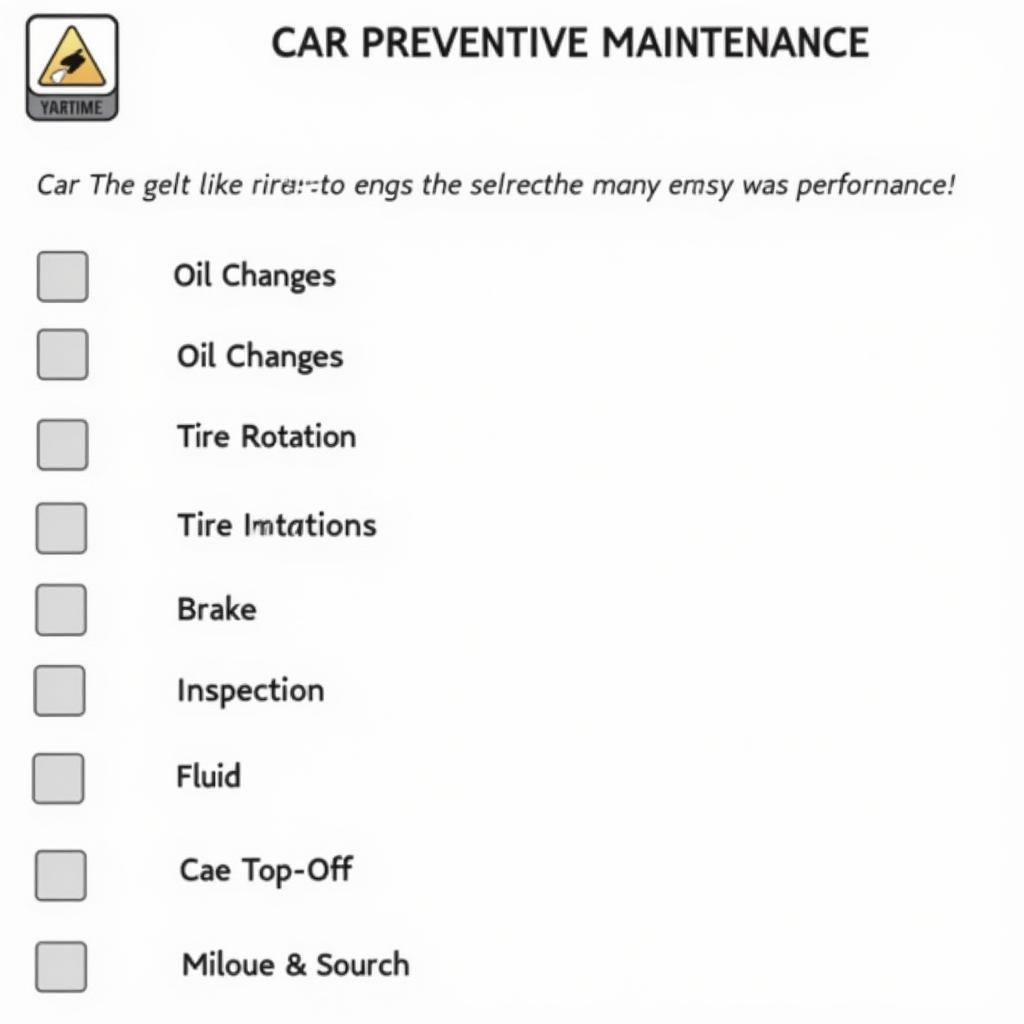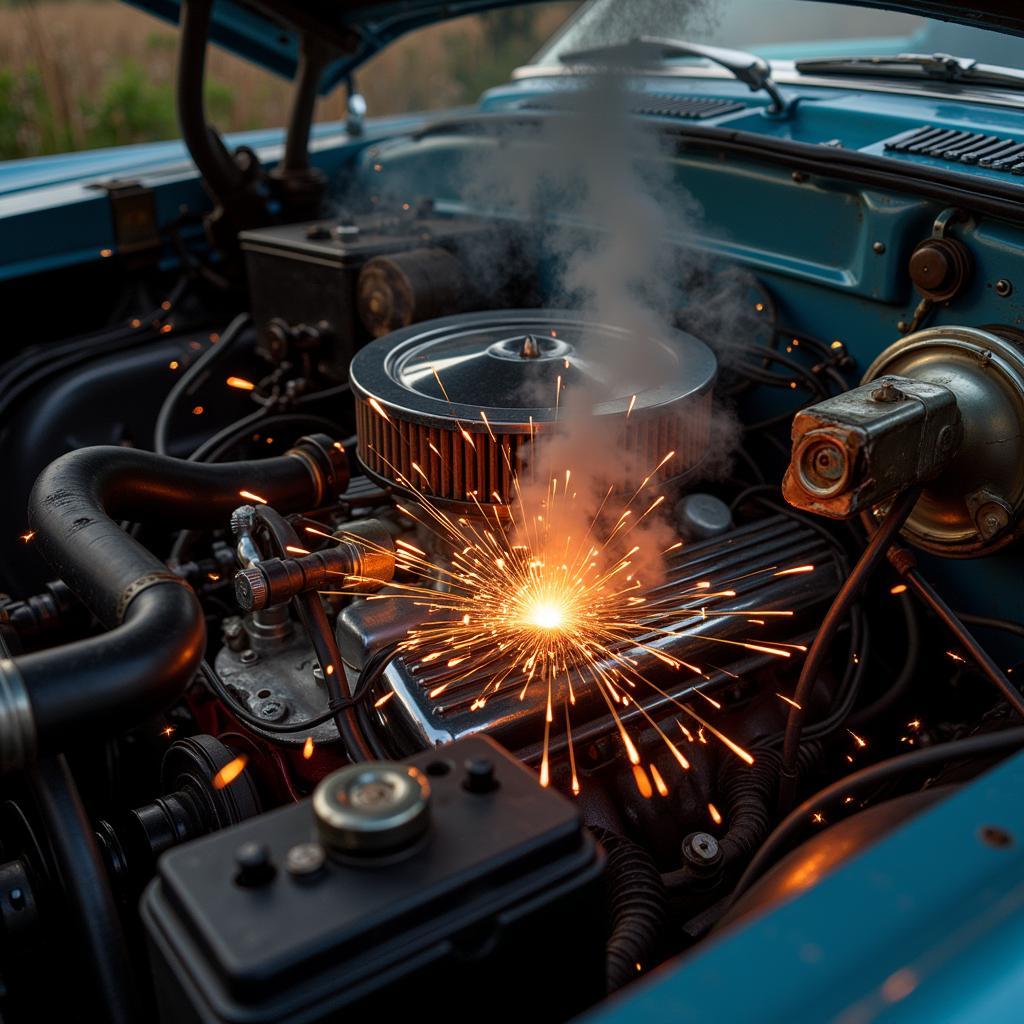The allure of a “maintenance-free” new car is tempting. It promises years of worry-free driving and freedom from regular visits to the mechanic. But is this a realistic expectation or just a clever marketing ploy? Let’s explore the truth behind maintenance-free new cars and what it means for you as a car owner.
What Exactly Does “Maintenance-Free” Mean?
The term “maintenance-free” in the context of new cars is often misleading. No car, regardless of its technology or price tag, is truly maintenance-free. Every vehicle requires some level of care and attention to maintain its performance and lifespan.
Even modern cars equipped with advanced features like self-healing paint or automatic oil changes still require routine maintenance.
Essential Maintenance Tasks for New Cars
While some aspects of car maintenance may be reduced, essential tasks like the following remain critical:
- Fluid Checks: Engine oil, brake fluid, coolant, and windshield washer fluid need regular checks and top-offs.
- Tire Maintenance: Tire pressure, tread depth, and alignment are crucial for safe driving and optimal fuel efficiency.
- Air Filters: Replacing dirty air filters improves engine performance and fuel economy.
- Battery Maintenance: Batteries require periodic checks and replacement when needed.
- Brakes: Brake pads and rotors wear out over time and need to be replaced.
- Regular Inspections: Routine inspections by a qualified mechanic ensure your car is running safely and efficiently.
Factors Affecting Maintenance Requirements
The frequency and complexity of maintenance on new cars vary based on several factors:
- Driving Habits: Frequent stop-and-go driving, heavy towing, or driving in extreme conditions can increase wear and tear, requiring more frequent maintenance.
- Vehicle Type: Sports cars, SUVs, and trucks often require more maintenance than compact cars or sedans.
- Engine Type: Modern engines with advanced technologies may require less frequent oil changes, but other maintenance needs might remain similar.
- Manufacturer Recommendations: Always consult your car’s owner’s manual for specific maintenance schedules and recommendations.
Extended Warranty Coverage
New cars often come with extended warranty coverage that includes certain maintenance services. These warranties can provide peace of mind and help offset the cost of regular maintenance. However, it’s crucial to understand the terms and conditions of these warranties, as they may have limitations or exclusions.
“Maintenance-Free” is an Oversimplification
“While it’s true that new cars are generally more reliable and require less frequent maintenance than older vehicles, the concept of a ‘maintenance-free’ new car is simply not accurate. Cars are complex machines, and even the most advanced models need regular attention to stay in top condition,” says John Smith, a veteran automotive technician with over 20 years of experience.
Conclusion
“Maintenance-free” new cars are more of a marketing term than a reality. While advancements in technology have reduced the frequency and complexity of some maintenance tasks, regular care is still essential to ensure your car’s longevity and performance.
To learn more about car maintenance, check out our other articles on new car service maintenance, belt maintenance on cars, excel sheet for car maintenance, and are electric cars lower maintenance.
For personalized guidance and support, contact AutoTipPro at +1 (641) 206-8880 or visit us at 500 N St Mary’s St, San Antonio, TX 78205, United States.
FAQ
- Q: What are some common maintenance tasks I should expect on a new car?
- A: Fluid checks, tire maintenance, air filter replacement, battery checks, brake inspections, and regular inspections by a mechanic.
- Q: How often should I get my new car serviced?
- A: Refer to your car’s owner’s manual for specific recommendations, but typically every 5,000-10,000 miles or 6-12 months.
- Q: Does my new car warranty cover all maintenance?
- A: Extended warranties may cover certain maintenance services, but it’s crucial to understand the terms and conditions.
- Q: Are electric cars truly maintenance-free?
- A: While electric cars require less frequent oil changes, they still need regular maintenance, including tire rotations, brake inspections, and battery health checks.
- Q: Can I perform my own car maintenance?
- A: Some simple tasks like fluid checks and tire pressure adjustments can be done at home. For more complex tasks, it’s best to consult a qualified mechanic.
- Q: How can I get the most out of my new car’s warranty?
- A: Follow the manufacturer’s recommended maintenance schedule and keep all service records.






Leave a Reply